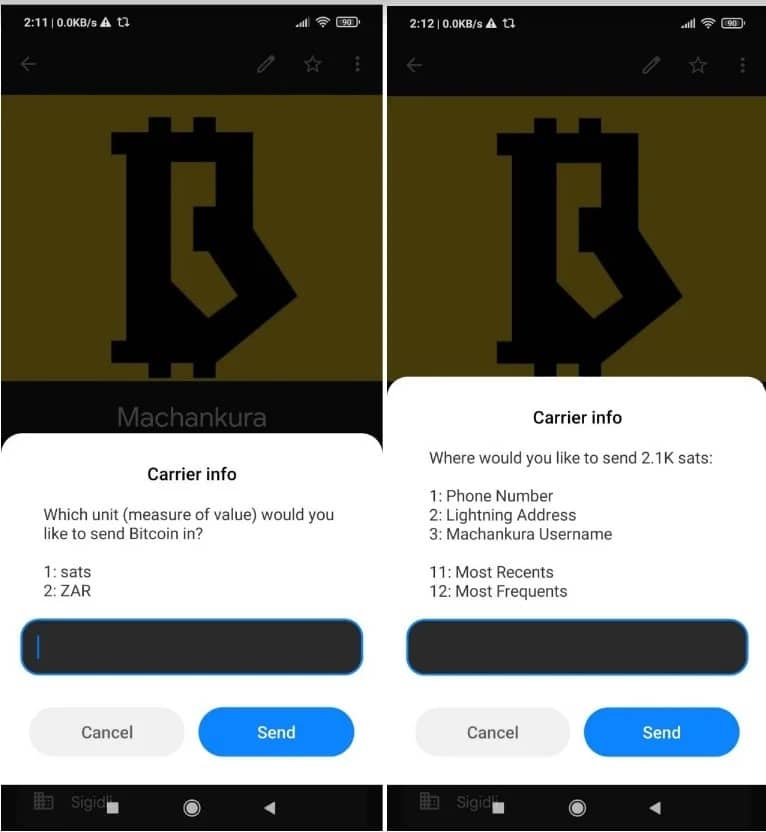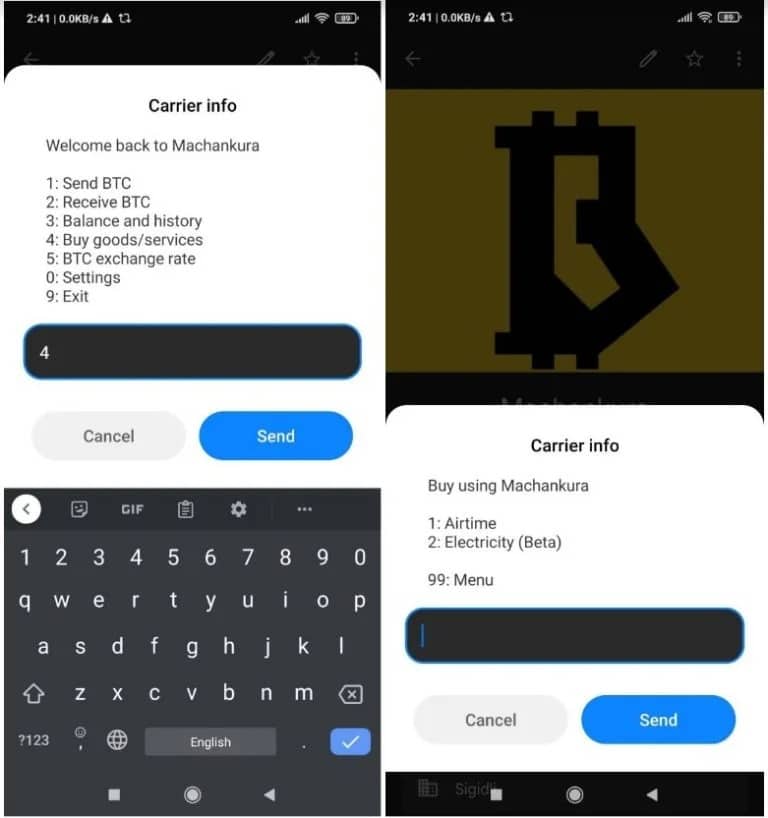In Africa, crypto-currencies like Bitcoin (BTC) are of particular interest to address the shortcomings of banking services. But access to Bitcoin itself can be limited by lack of internet connection. Cryptoast interviewed Machankura, a project that promises to solve both problems at the same time.
Machankura facilitates Bitcoin adoption in Africa
Last August, we discovered Machankura, a service that allows people to use the Bitcoin (BTC) network in Africa without an Internet connection. Given the ingenuity of this tool, Cryptoast sought to find out more about how it works.
As previously detailed, Machankura is aimed at African countries and operates using Unstructured Supplementary Service Data (USSD) technology. A USSD code is entered on the phone keypad and allows instructions to be sent directly to the phone operator.
Machankura has set up USSD codes so that they can perform actions on the Lightning Network, Bitcoin’s scalability solution. This means that even a famous Nokia 3310 could be used to exchange satoshis.
Thus, this service is aimed at people with limited access to the web and refocuses on Bitcoin’s core philosophy: exchanging value from peer to peer. Initially, Machankura will therefore seek to cover the entire African continent, later expanding to geographical areas where relevant. The project also explained that payments with phone credit are common in Africa:
In Africa, USSD is used to load phone credit for mobiles, which is then used as the main means of mobile payment. Our ambition is to cover all African countries. We will also be able to provide the service outside the continent where it makes sense. “
In order to top up mobile credit with Bitcoin, Machankura relies on the services of partners such as the company Bitrefill. This possibility is accessible directly from the application deployed on this USSD service:
We are integrating Bitrefill’s services, which allow our users who may not have an internet-connected device to purchase mobile credit. Users of this service can also send satoshis to other people. In addition, we allow our users to send satoshis to any wallet that supports a Lightning address. “
So the service offers residents of the African countries it covers a complete solution to manage their finances in an unbanked and Internet-free way, thanks to Bitcoin.
How to use Machankura
To find the list of USSD codes, the project has set up a detailed FAQ.
After setting up his account, he will then be able to send satoshis to his contacts, among other things:

Figure 1: Sending satoshis with Machankura
This system can also be used by someone who has left their country to earn a better living and wants to send money to their relatives. As explained above, the recipients can then convert these satoshis into phone credit via Bitrefill, to be used as a means of payment.

Figure 2: Buying phone credit with Machankura
On the other hand, Machankura is a custodial service, which means that it keeps the money of its users, just like a centralized platform. A 1% fee is charged for each transaction. The project team explained how the service works:
Users can receive satoshis via their Lightning address, which is expressed as “NuméroDeTélé[email protected]”. Technically, we manage a node on behalf of our users and maintain the balances of each transaction. So it’s a custodial service on the Lightning Network and we maintain nodes on behalf of our clients. “
For users who do not wish to share their phone number, they also have the option of setting up a pseudonym.
The first results of this Bitcoin service in Africa
The Machankura node on the Lightning Network has a capacity of 0.537 BTC, which is more than enough to handle many transactions. In total, 14 channels are connected to this node.
However, as promising as Machankura is, it can only be described as an experiment for the time being. Indeed, the first data unveiled show only a low adoption, which is normal, given the youth of the service:
Machankura Usage Stats
Total Users: 255
Total Transactions: 385Be sure to join us on the quoted space to talk about this past weeks activities. https://t.co/ukh8CwyjVY
– Machankura 8333 (@Machankura8333) August 8, 2022
So Machankura will have to find his audience. For the moment, his team is not necessarily looking to do any marketing campaign as such:
We rely mainly on word of mouth, and the ease with which a user can send bitcoin to a recipient. This is our main form of marketing. “
On the other hand, the services provided by the project should focus on bringing Bitcoin to unbanked and unconnected populations. Thus, Machankura confirmed to us that there will be no options to facilitate trading in the future. It is therefore a conscious choice to focus solely on the functional aspect.
While the service has many challenges to overcome in order to offer a large-scale solution in the future, it is nevertheless an initiative to be welcomed and followed, which could make Bitcoin a major economic vector in Africa.
